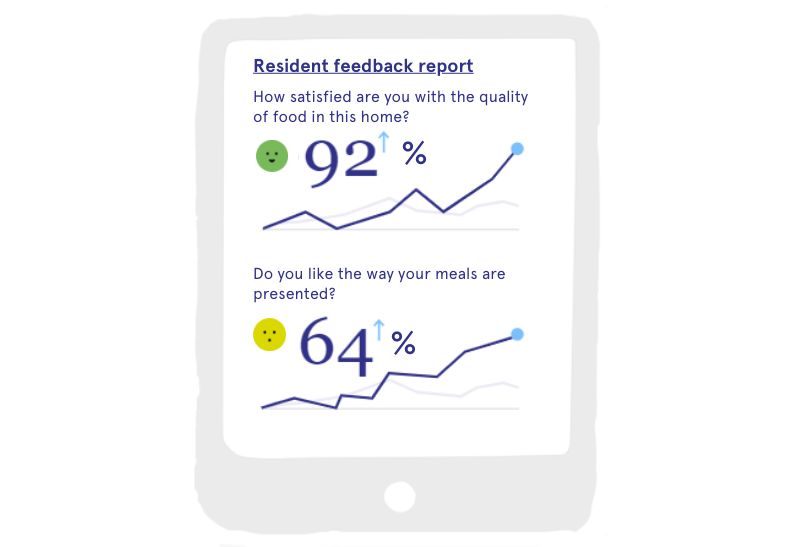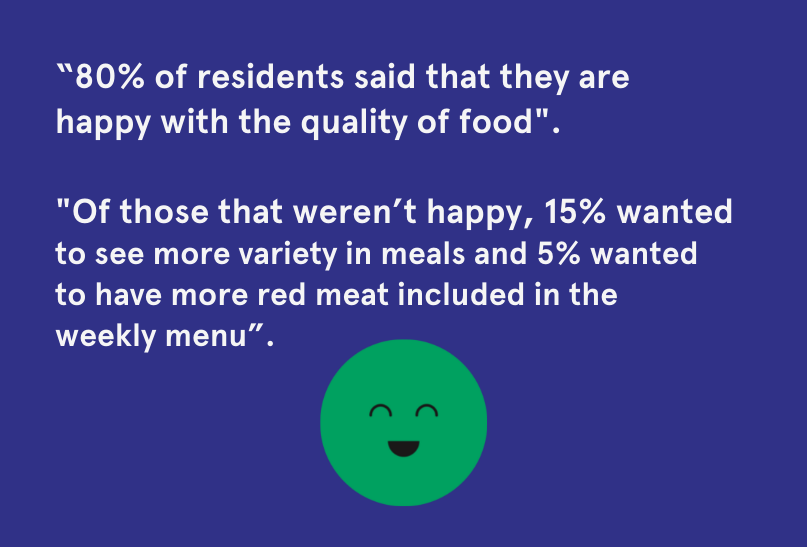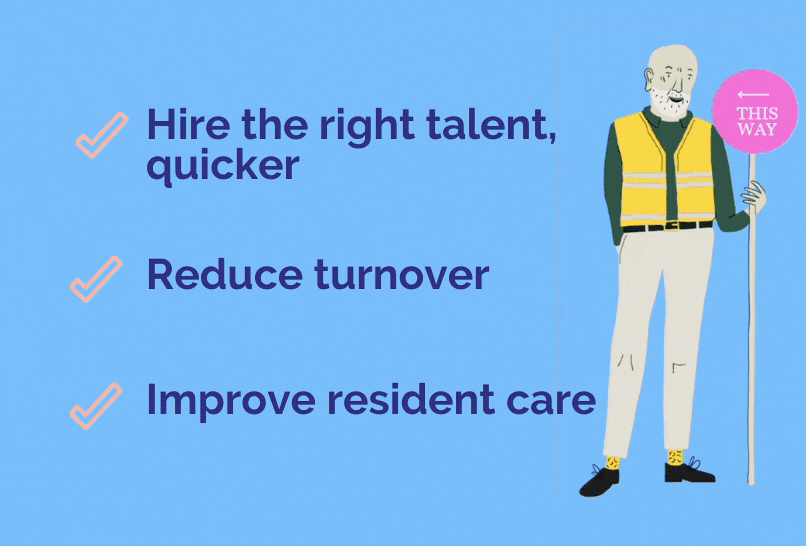
With the first quarterly report on the basic daily fee supplement due on October 21, 2021, many providers will be pulling together insights and evidence to support their organisations submission.
One thing is clear on review of the requirements and that’s the need for providers to have a solid understanding of the quality of life of residents, achieved by having a solid process in place to facilitate feedback collection.
So, what is the $10 daily fee supplement?
From 1 July 2021, the federal government made available to aged care providers a new ‘basic daily fee supplement’ of $10 per resident per day.
The supplement was announced in the May federal budget as part of the government’s $17.7 billion response to the Royal Commission into Aged Care Quality and Safety. It is intended to be spent by providers on improving the care and services offered to residents, particularly in relation to food and nutrition.
Who is eligible you ask….
The new supplement will be paid to eligible residential and respite aged care services and flexible care services that are multi-purpose services. The supplement is available to approved providers who formally agree (via an undertaking) and submit quarterly reports, with the first one due on October 21, 2021, for the period 1 July – 30 September 2021. You can download the undertaking form here.
Well then, what’s required from providers?
Providers have to complete and submit a quarterly report containing nine questions, including how much is spent on pre-prepared food, how many hours cooks or chefs are employed on site, how much is spent on allied health support, plus a free text response to two qualitative questions.
Reports will fall due 21 days after the end of each quarter. Failure to report will result in the payments being ceased until such time as reporting is restarted.
Breaking down the nine questions further, questions 1-7 relate to expenditure and hours, with only 1-3 mandatory and many providers have the processes in place to respond.
The final two questions 8-9, both mandatory fall under the category quality and adequacy and require providers to explain in detail how the organisation ensures it is providing an appropriate standard of daily living services, along with demonstrating any plans and processes to review and improve on the provision of these.
Gathering baseline measures and benchmarks to drive improvement.
When it comes to evidencing quality and responding to the reporting requirements of question 8 and 9, engagement with residents plays a key role.
A focus on the consumer is at the heart of delivering better daily living services for residents in aged care.
Regularly capturing feedback on food quality, menus and the dining experience directly from residents, supports plans for improvements which not only consider clinical nutritional wellbeing, but also quality of life.

In the first round of reporting, the requirements are clear for providers to indicate how they are going to measure and review the quality of daily living services and provide any baseline benchmarks.
It’s here that our CarePage survey tools can assist, by helping your organisation measure and monitor quality from the perspective of residents, as well as compare your performance to the sector via one of the largest data sets of aged care resident customer experience insights.
As directly stated in the requirements, the Department of Health would like to know if and/or how you are going to review the quality of your daily living services (including food and nutrition), existing baselines or benchmarks you might use, and plans you have, to make improvements. In subsequent reports, they would like to see updates on the progress of your improvement plans, and the outcomes of your reviews.
– 2021 Basic daily fee supplement reporting requirements, explanatory notes – July 2021
See how your colleagues are doing in the sector:
A CarePage partner has seen a massive improvement in food quality in a particular home after initially identifying that only 68% had positive feedback regarding the quality of food.
After deciding that this score required consultation with consumers, a resident focus group was formed to consult with chefs and kitchen staff and share their opinions on the quality of food.
From findings, staff then set about implementing a number of improvement processes based on the direct feedback they received from the resident focus group, yielding satisfaction scores between 91-100 per cent over the following six month period.
Feeling stuck with fulfilling the reporting requirements?
Don’t stress, we’ve spent years focusing on getting things just right for older people to provide aged care providers with real-time feedback to inform and improve their daily living services.
Find out how CarePage can support you with mandatory reporting requirements to gather baseline measures and track progress on food quality and dining experience improvements.
Book a demo and ensure you are ready for the October deadline.













